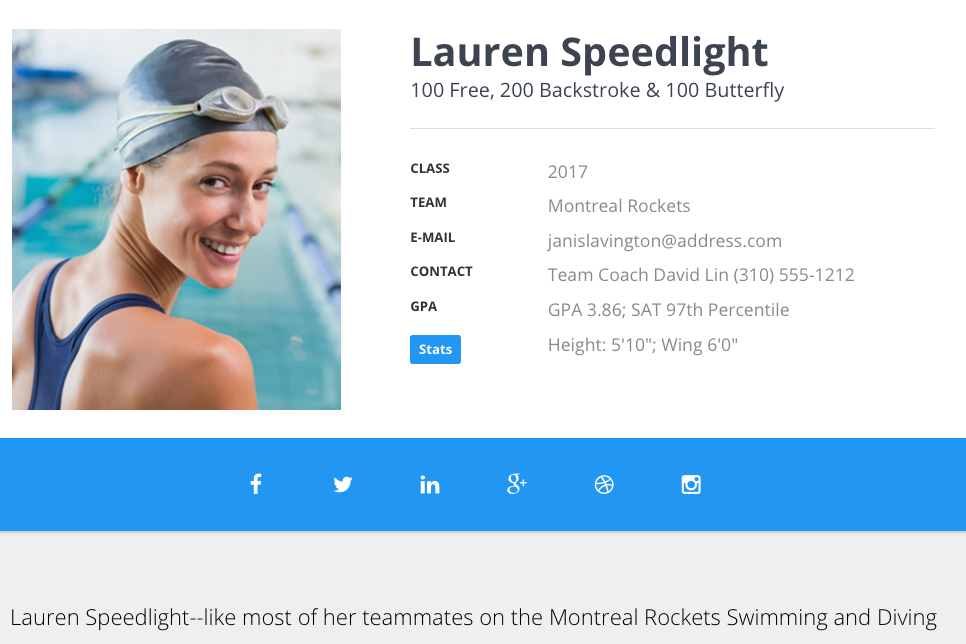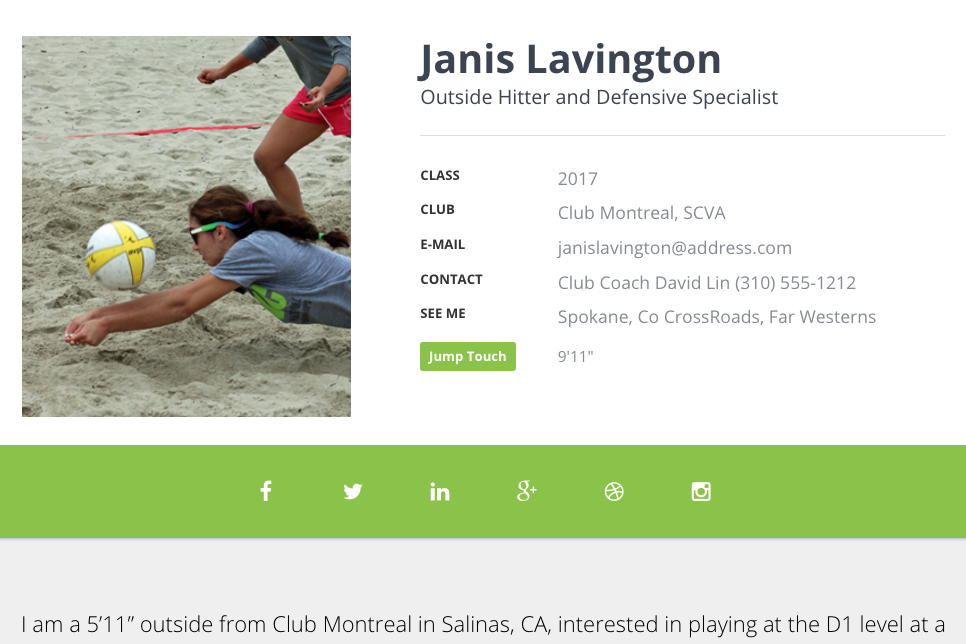Truthfully, squash scholarships are few and far between. Most collegiate sports are governed by the NCAA which distributes scholarship money with strict limitations on the number of scholarships allotted per team, and the way in which money can be distributed (i.e. on a head-count or equivalency basis). College squash, instead, is governed by the CSA (College Squash Association) and although that means there are no limits on athletic scholarship funds available to squash players, there are actually only a handful of college that offer squash scholarships at all.
Universities & Colleges With Squash Scholarships in the United States
The bad news: there's a very short list of US colleges offering squash scholarships:
- Stanford -- Women's programs only (Men's program is Club)
- George Washington University
- Drexel
But -- there are other US colleges with squash programs that offer other types of scholarship and financial aid:*
Squash teams are broken up by conference largely defined by geography or school size.
- The Ivy League: Brown University, Columbia University, Cornell University, Dartmouth College, Harvard University, Princeton University, the University of Pennsylvania, and Yale University. The Ivies do not offer athletic money for any sport. But they do have merit- and other need-based financial aid packages.
- The Liberty League: Bard College, Clarkson University, Hobart and William Smith Colleges, Rensselaer Polytechnic Institute, the University of Rochester, Rochester Institute of Technology, Skidmore College, St. Lawrence University, Union College, Vassar College, and William Smith College. Only Saint Lawrence, Vassar, and William Smith have women’s squash teams.
- New England Small College Athletic Conference (NESCAC): Amherst College, Bates College, Bowdoin College, Colby College, Connecticut College, Hamilton College, Middlebury College, Trinity College, Tufts University, Wesleyan University, and Williams College. But they do have merit- and other need-based financial aid packages.
UVA (University of Virginia) hopes to convert it's program to a varsity program soon, and if they do, it's assumed that they will also offer scholarships.
* For a full list of colleges with squash programs, including squash coach emails, see the CSA's website.
So with few squash scholarships, why even try to play squash in college at all?
For many reasons. First and foremost, it can help with college admissions, an otherwise hyper-competitive and very scary process for parent -- and kids -- to endure. Second, it's a well known fact in the professional recruiting world that employers recognize that high performing college athletes will likely be high-performing professionals, and it can give students a leg-up when it comes time to find a job. Third, squash is an incredibly fun and addictive game that is difficult to put down once you achieve a certain level of expertise. It also builds life-long fitness and continues to challenge players intellectually at all stages of life. Let's first look at the recruiting process for squash and then understand how to get a squash scholarship.
The Squash Recruiting Process - A Step-by-Step Guide
- Let coaches know you exist - and that you're interested. Most college coaches track junior players through their US Squash Rankings and make their way to the premiere junior tournaments, notably the US Open, Nationals, many JCT, and some Gold tournaments. Although college squash is not strictly governed by NCAA rules about when coaches can - and cannot - approach players, college coaches tend to stick to those guidelines, and those guidelines prohibit direct, in-person contact with players before July after their Junior year. However, phone and email exchange between players and coaches begins much earlier. If you are ranked in the top 32 in the US, you can expect that a number of college coaches will be interested in you. Admissions decisions for these top players will really come down to grades and test scores which need to be within the given range for each school.
- Study - Don't Party. Each college issues guidelines to coaches about academic minimums or GPA averages required of their squash teams. So each recruiting season, every college coach has to weigh the trade-offs between who will win the most matches, and which players will put up the best grades. Therefore, even if you are not a top player but are a strong student, it's possible that you can get recruited for squash. The flip side of that is that even if your grades aren't ideal but you are a strong player, you still have a chance of being recruited. That said, the academic bar at most colleges with squash programs is very high. Therefore, the very best thing you can do to increase your chances of getting recruited for squash is to study.
- Plan your SAT/ACT testing in advance. Coaches start following players their freshmen and sophomore years - even earlier in come cases. At some point during junior year they need to know whether their target players will be able to meet academic admissions standards. The earlier you can give perspective coaches good ACT/SAT scores, the better it is for you. However, statistically speaking, most high school students perform better on standardized testing the older they are. And, some select colleges require students to submit all standardized tests ever taken, so if you test too young and don't perform well and plan to apply to those schools whether or not you go in as a squash recruit, then you've done yourself a disservice. So the decision to test early or test when most high school students do (usually towards the end of their junior year) becomes a balancing act.
- Getting through the "Early Read." The NESCAC schools (see above) are all Division III schools which have what is known as an Early Read process. This typically begins no earlier than July after Junior year and goes through September or October of Senior year. At this time, college coaches present their list of potential squash recruits to their admissions officers, and admissions looks only at each player's grades, test scores, and senior class choices to qualify or disqualify them as potential admits.
- Attend college squash camps. College camps provide college coaches the opportunity to work directly with athletes and asses their 'intangibles'. Being part of a university squash team is more than scoring points. Coaches want to assess how you interact with others, how you bounce back from set-backs, and your general coachability. Colleges typically post summer camp schedules by February 1st, and you should try to attend camps where possible. Some smaller schools do not conduct their own camps, but instead these coaches travel to work at others' camps. If you'd like to find out your target coach's summer camp plans, just pick up the phone (or pen that email) and ask.
- Follow-up, follow-up, follow-up. Getting recruited for college squash is a little like finding a job. There may be other applicants with similar skill sets, but it's the squeaky wheel that gets the grease. You certainly don't want to be annoying, but sending coaches emails or texts once a month or once every other month is a good idea, especially when they are not 'in season'. Constructing an online profile where you can update your accomplishments and keep your grades and test scores available for download makes coaches' jobs easier. Then, all you have to do is shoot them a short email once a month or so with news of your finish in a recent tournaments, a jump in your rating, or grade/test results with a link to your recruiting website. Coaches are busy people and they don't have time for long emails. Show them that you respect their time, and let your website do the talking.
- Campus visit. After a number of phone calls, emails and/or scouting at tournaments, the next step in the process is an official campus visit. Campus visits help both the coach and player assess whether the university and its squash program are right “fits,” while also exposing the athlete to the university and team. If the campus visit goes well, the next step in the process is usually the extension of an offer from the university coach to the player.
How to Get a Squash Scholarship
Whether or not you're after a squash scholarship, the process is the same as applying as a general recruit. The only difference is that there only a handful of colleges currently offering athletic scholarships for squash, so if that's what you're interested in, contact those colleges with squash scholarships (above) early in the process and get acquainted with their academic requirements, then take the steps necessary to make sure both your rankings and grades are in line. Scholarship offers are made earlier than you think, so do your research and act early.
If Squash Scholarships Are So Limited, What About Other Financial Help?
Here's where it gets tricky. Often college athletic coaches have 'influence' in admissions decisions and can help steer you towards other non-athletic scholarships or other financial aid available to recruited athletes. Merit scholarships sometimes pay more than athletic scholarships, but again, you need good grades to qualify for one. In terms of other need-based financial aid, the rules are different for each college. So just because the majority of colleges with squash programs do not give squash scholarships, other forms of financial aid might be available. Your best possible outcome is to get more than one admissions offer because then you have some negotiating leverage.
Why Do I Need an Online Profile?
Truthfully, you don't need an online profile to get recruited for squash and get a squash scholarship but it is definitely an advantage. With the rise of mass-market recruiting agencies, college squash coaches are getting more email than they have time for. Rather than digging through hundreds- even thousands of emails to piece together a recruit's grades, scores and transcripts, an online profile offers the advantage of presenting a coach with one central location they can go to for all your critical information. A tastefully done online profile shows the coach you put some time and effort into the recruiting process. Why wouldn't you utilize every advantage available to you?
Conclusion
Getting recruited for squash can be competitive, but it’s also exciting. As a high school squash player, don’t forget that your ranking and your grades are your most important assets -- however, your ability to package and showcase your scores along with your academic performance, is also crucial to your success. With the right online profile, you have a better shot at standing out to coaches and bettering your chances for getting recruited for squash in college.
Our College Athletics Recruiting Websites Can Help with Your Recruiting Process:
 |
 |
 |